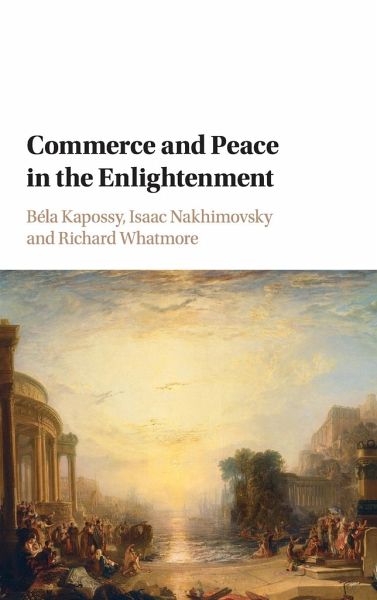
Commerce and Peace in the Enlightenment
Versandkostenfrei!
Versandfertig in 1-2 Wochen
123,99 €
inkl. MwSt.
Weitere Ausgaben:

PAYBACK Punkte
62 °P sammeln!
This volume offers a new history of the relationship between commerce and politics, from the eighteenth century to the present.




